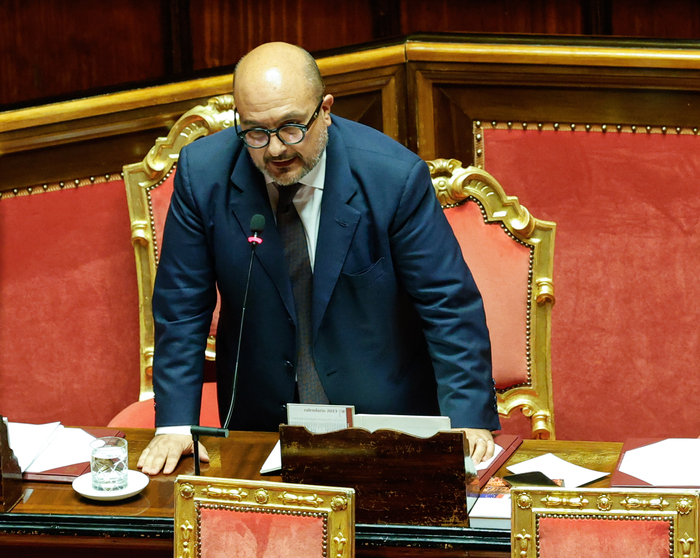Senate Greenlights Shoah Museum in Rome: A Landmark Moment for Holocaust Remembrance
Editor’s Note: The Italian Senate has approved the establishment of a national Holocaust museum in Rome. This significant development marks a crucial step in ensuring the enduring memory of the Shoah.
Why This Matters: Ensuring the Memory of the Holocaust
The Italian Senate's approval to build a national Holocaust museum in Rome is a momentous occasion. This project transcends mere construction; it represents a profound commitment to preserving the memory of the six million Jews systematically murdered during the Holocaust, and a dedication to educating future generations about this horrific period in history. The museum will serve as a vital space for remembrance, education, and reconciliation, ensuring that the atrocities of the past are never forgotten. Key words associated with this event include: Holocaust, Shoah, Rome, Italy, museum, remembrance, education, history, genocide, antisemitism.
Key Takeaways:
| Point | Description |
|---|---|
| Senate Approval | The Italian Senate officially voted in favor of the museum's establishment. |
| National Significance | This museum will be a national institution, signifying Italy's commitment to memory. |
| Educational Focus | The museum will prioritize education and historical accuracy in its exhibits. |
| Location in Rome | The museum's location in Rome underscores its importance within Italy and Europe. |
| Long-Term Impact | The museum aims to combat antisemitism and foster understanding for future generations. |
Senate Greenlights Shoah Museum in Rome
The decision to establish a national Holocaust museum in Rome marks a turning point in Italy's approach to Holocaust remembrance. For years, advocates have championed the creation of a dedicated space to honor the victims and educate the public about the Shoah. The museum's establishment will finally provide a centralized and comprehensive resource to ensure that the lessons of the Holocaust are not lost to time. The museum's design and curatorial approach will prioritize historical accuracy and sensitive storytelling.
Interactive Exhibits: Engaging with History
The proposed museum will feature interactive exhibits, incorporating survivor testimonies, historical documents, and personal artifacts. These interactive elements will enhance the visitor experience, fostering a deeper understanding and empathy for the victims and their experiences. The use of cutting-edge technology will also ensure the museum remains relevant and engaging for future generations.
Addressing Antisemitism: A Critical Role
One of the museum's crucial roles will be to actively combat antisemitism. By providing a factual and comprehensive account of the Holocaust, the museum will work to challenge prejudice, stereotypes, and hateful ideologies. This educational role is paramount in preventing the resurgence of such horrific events.
The Museum's Impact: A Legacy for Future Generations
The establishment of this museum has far-reaching implications. It serves not only as a memorial to the victims but also as a potent symbol of Italy’s commitment to combating intolerance and prejudice. It will become a vital educational resource, teaching future generations about the dangers of hatred and the importance of tolerance and understanding.
People Also Ask (NLP-Friendly Answers)
Q1: What is the Shoah Museum in Rome?
A: The Shoah Museum in Rome will be a national Holocaust museum dedicated to remembering the victims of the Holocaust and educating the public about this tragic period in history.
Q2: Why is this museum important?
A: This museum is crucial for preserving the memory of the Holocaust, combating antisemitism, and teaching future generations about the dangers of intolerance and hatred.
Q3: How can I support the museum?
A: You can support the museum by staying informed about its development, visiting once it opens, and donating to organizations dedicated to Holocaust remembrance and education.
Q4: What challenges did the museum face before approval?
A: The project likely faced challenges securing funding, finding a suitable location, and navigating the complexities of curatorial development and public outreach.
Q5: When will the Shoah Museum in Rome open?
A: The opening date hasn't been officially announced yet. More information will be released as the project progresses.
Practical Tips for Understanding the Holocaust
- Visit a Holocaust museum: Experiencing a museum firsthand provides a powerful and emotional understanding.
- Read survivor testimonies: First-hand accounts offer crucial insights into the human cost of the Holocaust.
- Watch documentaries: Documentaries offer diverse perspectives and enhance understanding.
- Educate yourself: Research the history of the Holocaust through reputable sources.
- Discuss the Holocaust: Talking about it helps to keep the memory alive and combat ignorance.
- Support organizations fighting antisemitism: Many organizations work to combat hate and prejudice.
- Challenge hate speech: When you see antisemitism or intolerance, speak up.
- Remember the victims: Keeping their stories alive is a vital act of remembrance.
Summary: The Italian Senate's approval of the Shoah Museum in Rome is a significant step in ensuring the lasting memory of the Holocaust. This museum will play a crucial role in education, remembrance, and the fight against antisemitism.
Closing Message: The Shoah Museum in Rome represents a commitment to never forgetting the atrocities of the past. Let us all work together to ensure that the lessons learned from the Holocaust guide our actions towards a more just and tolerant future. Share this article to spread awareness and help ensure the museum’s success.
Call to Action: Learn more about the Shoah Museum and support its mission by visiting [insert relevant website link here]. Share this article on social media using #ShoahMuseumRome #HolocaustRemembrance #NeverForget.
(Insert hreflang tags here, tailored to various language versions of the article)

